Introduction: In this article, Jane Hampton Cook writes about an example of press freedom in early America, involving George Washington and James Rivington. Jane is a presidential historian and author of ten books, including her new book Resilience on Parade: Short Stories of Suffragists & Women’s Battle for the Vote. She is the author of Stories of Faith and Courage from the Revolutionary War. She was the first female White House webmaster (2001-03). Her works can be found at Janecook.com.
Because GenealogyBank’s Historical Newspaper Archives date back centuries, we can discover the origin stories of a bedrock American principle: freedom of the press. One such story involves America’s first president and a newspaper publisher loyal to the British Crown.
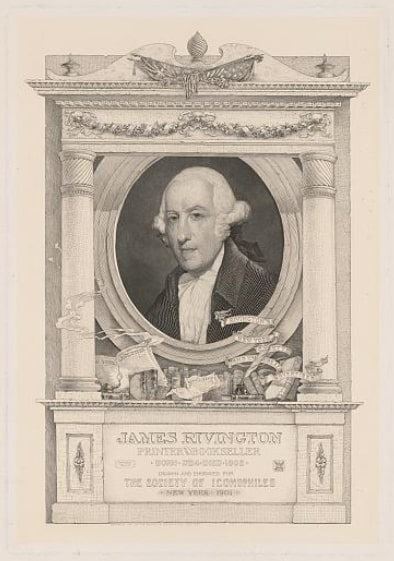
James Rivington printed Rivington’s New-York Gazetteer. When a mob threatened him in 1775, he published an impassioned plea for freedom of the press:
“Last Thursday was hung up by some of the lower class of inhabitants, at New Brunswick [New Jersey], an effigy representing the person of Mr. Rivington, the printer at New York, merely for acting consistent with his profession as a free printer.”
Rivington described the perpetrators as “the very dregs of the city,” who were “flushed with the inebriating draughts, not of the juice of the Vine, but of New England Rum.”
He also printed a drawing depicting his face and body hanging in a tree. Defending his beliefs, he asserted “that his press has been open to publications from ALL PARTIES; and he defies his enemies to produce an instance to the contrary.”
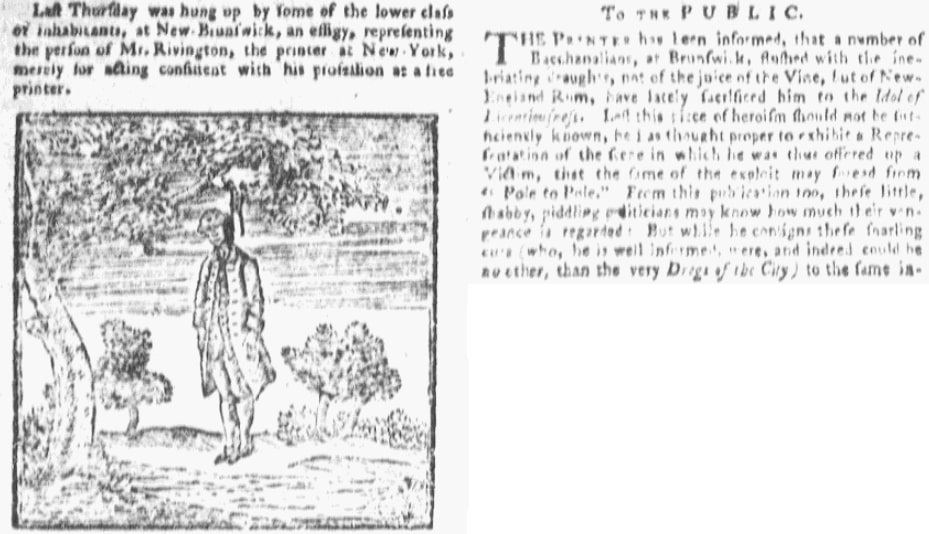
He was correct. Rivington had published articles from both Patriots and Loyalists. In England he had grown up hearing “LIBERTY OF THE PRESS represented as the great security of freedom,” and had heard similar sentiments in the American colonies.
Rivington then unleashed his venomous opinion that the mob sought to:
“…establish a most cruel tyranny, and the printer thinks that some very recent transactions will convince the good people of this city of the difference between being governed by a few factious individuals, and the GOOD OLD LAWS AND CONSTITUTION, under which we have so long been a happy people.”
But his plea wasn’t enough. After the mob burned his press, he fled to England in 1776. Rivington returned in 1777 with newfound confidence as King George III’s official publisher of the Royal Gazette in New York, which was controlled by the British military.
He then became a partisan publisher of negative stories about George Washington. On 25 August 1781, Rivington published false news that the French had withdrawn all of their support of America, which led Washington and the French Commander to flee from their “menacing” position in New York. Articles like this led many Patriot newspaper editors to despise Rivington.
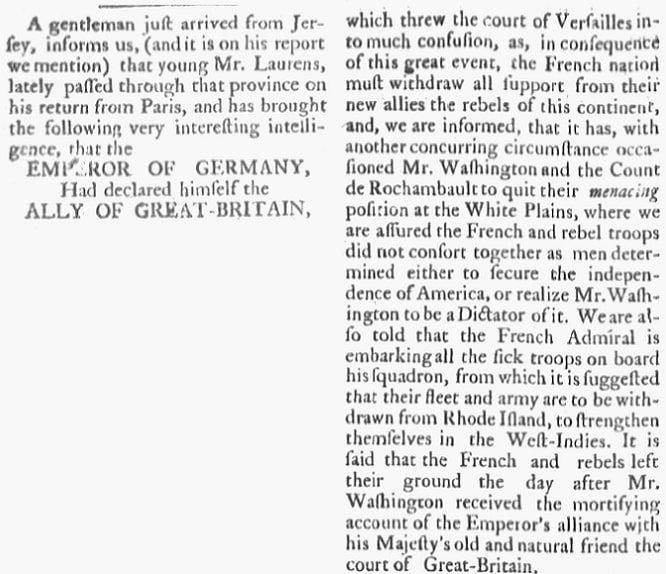
In reality Washington and his French allies headed to Virginia, where they beat the British at the Battle of Yorktown, the American Revolution’s final battle.
Something really curious, however, took place. After the peace treaty in 1783, the British military evacuated New York. Did Rivington go with them? No. Not only did he stay, but Rivington also received special protection from Washington.
Spooner’s Vermont Journal and other newspapers published articles about this curious situation:
“It is reported as an undoubted fact, that Mr. James Rivington, Printer at New York, was, as soon as our troops entered the city, protected in person and property, by a guard, and that he will be allowed to reside in the country, for reasons best known to the great men at [the] helm.”
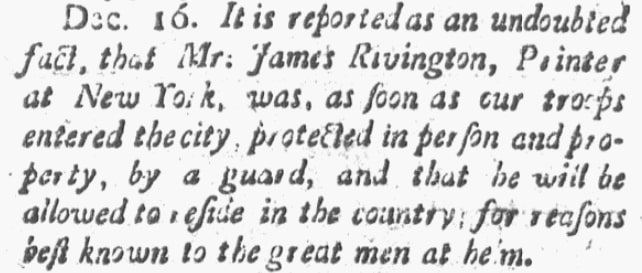
Many Patriot newspaper editors were furious because Rivington’s “Royal Gazette has been notorious only for falsehood and the most abominable lies.”
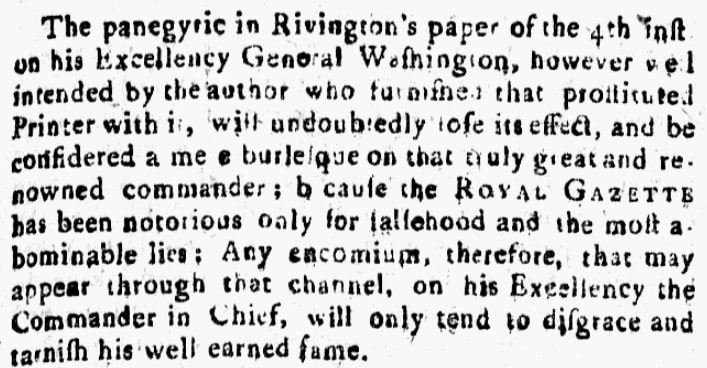
Why did Washington protect Rivington? Evidence later revealed that Rivington gave the Royal Navy’s signal book to one of Washington’s spies in August 1781. In other words, Rivington secretly aided Washington while printing false things about him in his newspaper.
Perhaps Washington’s protection was also a statement that he also valued freedom of the press and could move past negative stories. He wanted Rivington to be able to make a living in the United States as a publisher.
How did Rivington respond? He changed the name of his newspaper. Gone was the Royal Gazette. Replacing it was Rivington’s New-York Gazette and Universal Advertiser. Rivington’s story shows the origin of freedom of the press in both practice and principle.
Explore over 330 years of newspapers and historical records in GenealogyBank. Discover your family story! Start a 7-Day Free Trial
